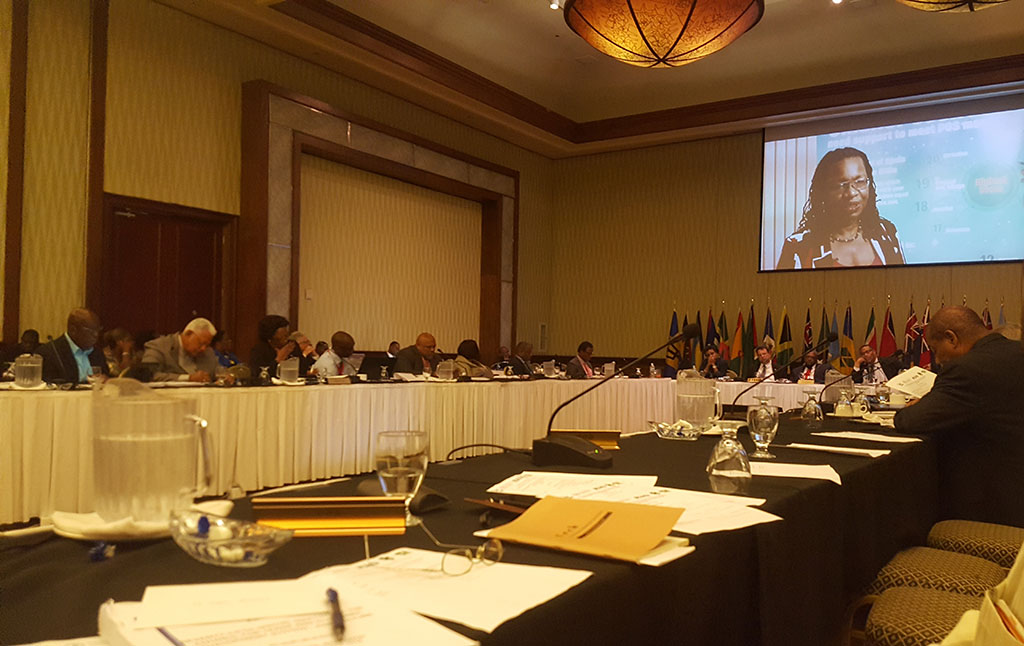- November 01st, 2018
- /
- Fan Articles
- /
- 0 Comments
- /
- Despite Challenges, Regional Agriculture Heads Keen to Help in Health
 With regional food import bills and the cost of inputs in agriculture skyrocketing and a shift from local food production to growing for export, it is difficult to say if progress has been made in agriculture over the past ten years.
With regional food import bills and the cost of inputs in agriculture skyrocketing and a shift from local food production to growing for export, it is difficult to say if progress has been made in agriculture over the past ten years.
This from Principal Investigator with the Improving Household Nutrition Security and Public Health in CARICOM (FaN) project, Professor Alafia Samuels, who recently spoke to regional agriculture policy makers and technocrats at the Caribbean Week of Agriculture 2018, held in Barbados.
Prof. Samuels took the opportunity to highlight a new project designed to improve the quality and diversity of the diet by promoting the sustainable production, processing, distribution, preparation, sale and consumption of safe, affordable, nutritious, high-quality Caribbean food. According to Prof. Samuels, the project team was very well received at the annual event.
However her concern is that although agriculturalists have made a commitment and the interest is there, “agriculture faces a lot of challenges in the region… I don’t think that there has been a formal evaluation but what we all know is that unhealthy eating is increasing in the Caribbean. That the unhealthy imports are increasing. That local production is declining. That’s a known fact so it’s not looking so good.”
In 2007, after the Heads of Government Port of Spain Declaration (uniting to stop the epidemic of NCDs), Ministers of Agriculture in CARICOM issued a St. Anne’s Declaration. It highlighted how agriculture could support healthy eating in the region by implementing agriculture and food policies to prevent obesity and non-communicable diseases (NCDs) in the Caribbean Community. The Ministers agreed to develop food and agriculture policies that explicitly incorporate nutrition goals, use dietary guidelines in designing food production strategies, explore appropriate incentives and disincentives that encourage the production and consumption of regionally produced foods, particularly fruits and vegetables, establish programmes for research and surveillance on agricultural policy and programmes that impact on the availability and accessibility of foods that affect obesity and NCDs.
Caribbean Week of Agriculture (CWA) was conceptualized by the Inter-American Institute for Cooperation on Agriculture (IICA) as a facility to place agriculture and rural life on the “front burner” of regional integration activities.



